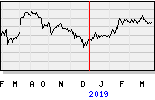
Minneapolis, MN, November 6, 2012 – BioAmber will be the supplier of biobased succinic acid to a Faurecia-Mitsubishi Chemical partnership for the production of automotive plastics. Faurecia has been conducting research into bioplastics derived from 100% natural materials since 2006 (BioMat project) and has now signed an exclusive industrial partnership agreement with Mitsubishi Chemical Corporation to co-develop bioplastics designed for mass-production for use in automotive interiors. Faurecia plans to develop a full range of bioplastics, which are set to see a boom in the 2015 to 2020 period.
The environmental constraints associated with vehicle weight reduction and the regulations intended to increase the recyclability of materials used in the automotive industry (85% in Europe by 2015) call for increased use of new materials derived from natural resources, which will ultimately replace petroleum-based plastics. This initiative also aims to ensure that the materials used have a positive impact on the product life cycle (from initial extraction through to end-of-life).
The objective of the joint Faurecia-Mitsubishi Chemical program is to develop a polymer that can be used in mass-production for automotive interior parts (door panel trim strip, structural instrument panel and console inserts, air ducts, door panel inserts, etc.). The joint development will start by modifying Mitsubishi Chemical’s patented biomass-derived poly-butylene succinate (PBS) and ultimately target to be produced from 100% bio-based. BioAmber will be the supplier of bio-based succinic acid to the partnership. Under the terms of the agreement, Faurecia will hold exclusive rights to automotive applications of the specific polymers jointly developed under this project. This project builds on several years of development work carried out jointly with BioAmber, the leading specialist in bio-based succinic acid technology.
Nicolas Pechnyk, Vice President Engineering for Faurecia Interior Systems, explains: “This strategic agreement with Mitsubishi Chemical will make Faurecia the first automotive equipment supplier to mass-produce a 100% bio-based plastic. We are confident about the future of this technology as a substitute for petroleum-based plastic components; indeed, it is one of the main thrusts of our strategic initiative ‘bio-attitude’.”
Shigeru Handa, General Manager of Mitsubishi Chemical’s Sustainable Resources Business Development Department, comments: “We are convinced that Faurecia’s commitment to sustainability is in line with Mitsubishi Chemical’s “KAITEKI” concept. We believe our strengths in biotechnology, polymer development, and patent position will contribute to this partnership with Faurecia”.
The agreement will enable three market leaders to pool their respective strengths: Faurecia, no. 1 worldwide in automotive interiors, Mitsubishi Chemical Corporation, one of the world’s largest chemical companies and BioAmber, a pioneer in the production of bio-based succinic acid.
Source : www.Bio-Amber.com
BASF and Purac, a subsidiary of CSM, are establishing a joint venture for the production and sale of biobased succinic acid. The company will be called Succinity GmbH and will be operational in 2013. The establishment of Succinity GmbH is subject to filing with the relevant competition authorities. The company headquarters will be in Düsseldorf, Germany.
BASF and CSM have been conducting research under a joint development agreement on succinic acid since 2009. The complementary strengths in fermentation and downstream processing led to the development of a sustainable and highly efficient manufacturing process based on a proprietary microorganism. The bacterium used is Basfia succiniciproducens which produces succinic acid through natural processes and is capable of metabolizing a variety of renewable feedstocks into succinic acid. The new process combines high efficiency with the use of renewable raw materials and the fixation of the greenhouse gas carbon dioxide (CO2) in the production of succinic acid. This makes biobased succinic acid an economically and ecologically attractive alternative to petrochemical raw materials.
The demand for succinic acid is anticipated to grow strongly in the years ahead, driven mainly by bioplastics, chemical intermediates, solvents, polyurethanes and plasticizers. The two companies are currently modifying an existing fermentation facility, at Purac’s Montmélo site near Barcelona, Spain, for the production of succinic acid. This plant, which will commence operations in late 2013 with an annual capacity of 10,000 metric tons of succinic acid, will put the new joint venture company in a leading position in the global marketplace. This is complemented by plans for a second large-scale facility with a capacity of 50,000 tons of succinic acid to enable the company to respond to the expected increase in demand. The final investment decision for this facility will be made following a successful market introduction.
